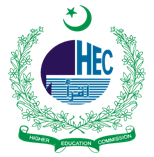Why BIM not standardized by LDA, for Submission documentation? A review
Keywords:
Digital Infrastructure, Submission, BIM Standardization, Regulatory Challenges, Legislative Frameworks, SustainabilityAbstract
Though the technology of Building Information Modeling has, through the holistic method of generating and handling all the information required for any project to be built, transformed the building codes and practices worldwide, such has not been the case of Pakistan. This paper focuses specifically on the reasons why the Lahore Development Authority (LDA) has despite the various advantages and accuracy to be had with BIM, not yet standardized it to be used for the documentation of submissions and other processes. This research highlights the main reasons behind the delay in the implementation of BIM technology by LDA, which includes the limited training and teaching, high costs in implementing the BIM technology as well as the lack of digital infrastructure to aid the professionals and the government staff. Furthermore, the lack of legislative ruling and the necessity of updating the building regulations and codes also make the BIM standardization procedure challenging. Another important issue that impedes the adoption of this technology is unprofessionalism and immaturity of the local market which in turn makes the streamlining of the processes of drawing submission and data management.
The present research emphasizes the importance of developing benchmarks for institutional support, pilot projects, and policy changes that may lead to a sustainable environment for architecture and regulation in Lahore. In order to gain a deeper insight, this study will draw a comparative analysis of the Lahore Development Authority and the Singapore Construction Authority in the context of administrative structure, performance and methodologies of both bodies to achieve sustainability in the build infrastructure while also looking at the minimum amount of red tape-ism.
Downloads
Published
Issue
Section
License
Copyright (c) 2024 Sarmad Salahuddin, Omar Shujat Bhatti, Mohammad Khalid Chauhan, Yasmeen Amir Jaffri

This work is licensed under a Creative Commons Attribution-NonCommercial 4.0 International License.








